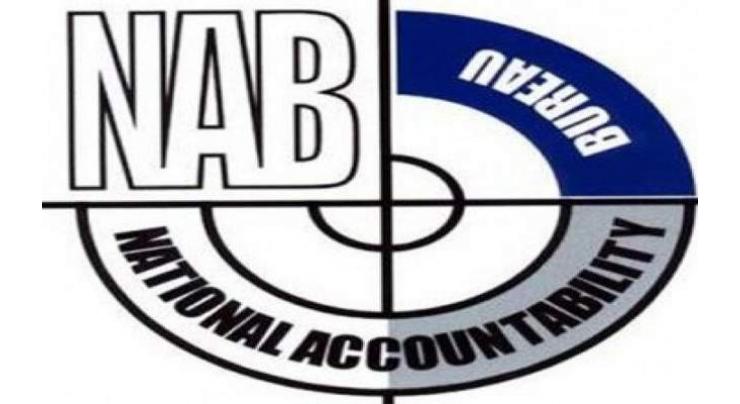
NAB's Anti-corruption Strategy Proves Successful : Chairman
Umer Jamshaid Published November 15, 2016 | 03:25 PM

ISLAMABAD, (UrduPoint / Pakistan Point News - 15th Nov, 2016 ) : National Accountability Bureau (NAB) is engaging different organizations, civil society and media in its campaign against corruption which has started yielding positive results.
The campaign - Say No to Corruption - will continue in 2016 as well to aware people about ill effects of corruption, Chairman NAB, Qamar Zaman Chaudhry said while chairing a meeting held here on Tuesday.
The meeting was held to review NAB's Anti-Corruption Strategy, especially progress on Awareness and Prevention countrywide campaign lunched throughout country. He said as per feedback received from various segments of society, NAB's Awareness and Prevention campaign had been effectively and positively highlighted in print and electronic media which has been appreciated by all segments of society.
The Chairman said NAB during 2015 has taken steps under the Campaign which included carrying Say No to Corruption message in urdu and English on ATMs of all scheduled banks.
NAB and Higher education Commission (HEC) have signed Memorandum of Understanding (MoU) for creating awareness amongst students of various universities.
More than 42,000 Character Building Societies have been established in various universities and colleges across the country. NAB, SNGPL, IESCO, LESCO, GEPCO, FESCO and K-Electric joined hands the message from their platform on electricity and gas bills.
NAB, in collaboration with Pakistan Post, has specially designed and formally issued a commemorative stamp to mark World Anti-Corruption Day. NAB, in collaboration with Islamabad Traffic Police has started printing the message on driving licenses.
The Bureau in collaboration with Pakistan Film Censor board is airing video message on "Say No to Corruption" in all Cinema Houses of the country. NAB message is being printed on all government tenders issued for publication on all newspapers in Balochistan and Gilgit Baltistan.
Related Topics
Recent Stories

Currency Rate In Pakistan - Dollar, Euro, Pound, Riyal Rates On 25 April 2024

Today Gold Rate in Pakistan 25 April 2024

Mired in crisis, Boeing reports another loss

Session Awarding Ceremony 2024 held at Cadet College Muzaffarabad

Austrian ski great Hirscher to make comeback under Dutch flag

Pakistan, Japan agrees to convene 'Economic Policy Dialogue'

FM Dar conveys deepest sympathy on torrential rains devastation in UAE

Spain PM Sanchez says weighing resignation after wife's graft probe

Tennis: ATP/WTA Madrid Open results - 1st update

Long-lost Klimt portrait auctioned off for 30 mn euros

Osaka seals first win on clay since 2022 in Madrid

Earthquake jolts Karachi
More Stories From Pakistan
-
15 female teachers injured in road accident
45 minutes ago -
Pakistan, UK discuss collaboration in education sector
9 hours ago -
PMD forecast rain-windstorm/thunderstorm for various parts of country
10 hours ago -

Session Awarding Ceremony 2024 held at Cadet College Muzaffarabad
10 hours ago -

FM Dar conveys deepest sympathy on torrential rains devastation in UAE
11 hours ago -

Earthquake jolts Karachi
11 hours ago
-

Sindh minister orders operation after attack on police in Ghotki
11 hours ago -

Police book youngster for abusing student for one year
11 hours ago -

Police arrest 23 suspects, recover stolen money, phones
11 hours ago -

Colorful cultural festival concludes at NUML
11 hours ago -

Immunization awareness week kicks off in Balochistan
11 hours ago -

Ministers visit Aziz Bhatti Shaheed Hospital following roof collapse incident
11 hours ago








